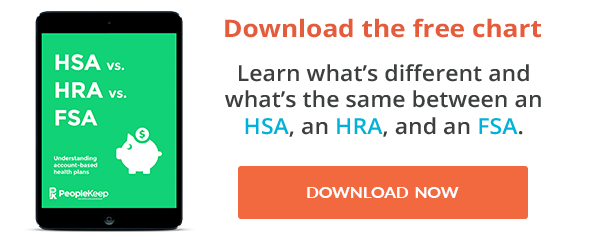The February 18, 2015, the Internal Revenue Service released Notice 2015-17 indicating that the sanctions imposed on small businesses with fewer than 50 employees involved in a payment of employer's plan will be delayed until June 30, 2015. Opinion 2015 -17 is great news for struggling small businesses nationwide to provide affordable health benefits to their employees while remaining consistent with care Act affordable
Note :. HRP (ZaneHealth) is not a payment of employer plan. HRP is a group health plan to reimburse employees for health insurance premiums while respecting market reforms. Employers now have until 1 July 2015 to adopt compliant solutions as ZaneHealth to avoid excise taxes.
What Bill Payment? 
The IRS provides an overview of employer payment plan as an arrangement where an employer reimburses an employee directly for individual policies of health insurance or pay employee bonuses directly.
Why payment schemes subject to IRS penalties?
In 2013, the IRS issued Notice 2013-54 , which ranked as payment schemes group health plans and therefore subject to reforms affordable care Act market. These reforms include the ban on annual limits for essential health benefits and the obligation to provide certain preventive services without cost sharing. Notice 2013-54 demanded that employers offering plans of the employer payment fail to comply with these market reforms and may be subject to $ 100 / day excise tax per employee.
After labor decisions Department indicated that, regardless of whether these types of refunds occur on a pre-tax or after-tax basis, the agreement constitutes a health plan group and must meet the ACA market reforms.
Does the IRS Notice 2015-17 Plans ZaneHealth impact?
No. Plans ZaneHealth are not paying employer plans because these plans meet the ACA market reforms, companies offering ZaneHealth (Repayment Plan of health) are not exposed to the excise tax.
Does the IRS notice 2015 -17 impact ZaneHRA Plans?
Notice 2015-17 recalls that reimbursement arrangements Health (CRH) under two employees are not considered a group health plan, therefore, are not subject to reforms affordable care Act market. Small businesses can continue to offer a single autonomous participant HRA without being subject to the excise tax.
Previous guidance to end the use of small businesses in certain autonomous HRAs when two or more employees participated in the plan (severely limiting the option of affordable health benefits crucial to available to small businesses).
mentioned are other arrangements?
Yes, opinion 2015-17 deals specifically the use of employer's plan to finance the payment of health insurance premiums or provide health-related TRICARE Reimbursement Arrangement. If these arrangements cover two or more active employees, the arrangement is a health plan of the group and is subject to the reforms of the ACA market and the associated penalties after June 30, 2015 the extension.
What is the recent announcement mean for business owners?
Specifically, the IRS will continue to allow more than two percent shareholders in an S corporation to deduct their premiums on page 1 of Form 1040 in accordance with Article 162 ( l). tax penalties will be delayed by more than two percent of the S-Corporation shareholders until further guidance is issued.
Where this leaves a small business Subject to these IRS penalties?
While employers may still choose to increase employee compensation as long as the compensation does not coincide with the purchase of an individual health insurance policy, employers should avoid directly reimburse employees for the cost of health care - either on a before tax or after tax - as arrangement remains subject to the ACA market reforms.
Interested employers to reimburse employees for health insurance premiums must ensure they establish a formal repayment plan in accordance with market reforms (such as ZaneHealth).
With the delay IRS tax penalties, small businesses now have the time to examine the health benefits options that adhere to market reforms. This may include the use of SHOP (health options for small businesses Programme) of the federal market or establish a compliance medical self-insurance repayment plan as HRP.
What's next
Although the recent opinion is a temporary solution , this is not enough and many - including Zane Benefits - calling on Congress to find a permanent solution to CRH. Small businesses may see further relief with the reintroduction of Small Business Act Relief Healthcare, previously introduced in 2014 by Reps. Mike Thompson (D-CA) and Charles Boustany (R-LA).
The law establishes the existing guidelines limiting the use of stand-alone health reimbursement arrangements (HRA) for small businesses. Without access to these options, small businesses are at a disadvantage without affordable health benefits necessary to recruit and retain quality employees.
Conclusion
The health benefits are a large part of the success of small businesses. As companies struggle to find affordable health care options, recent IRS notice of the announcement comes as great news. With the late tax penalties IRS, now small firms have the extra time needed to consider the health benefits options while remaining consistent with the Act on the Affordable Care.
What questions do you have about the IRS penalties for employer plans delayed payment? Leave a comment below.



0 Komentar